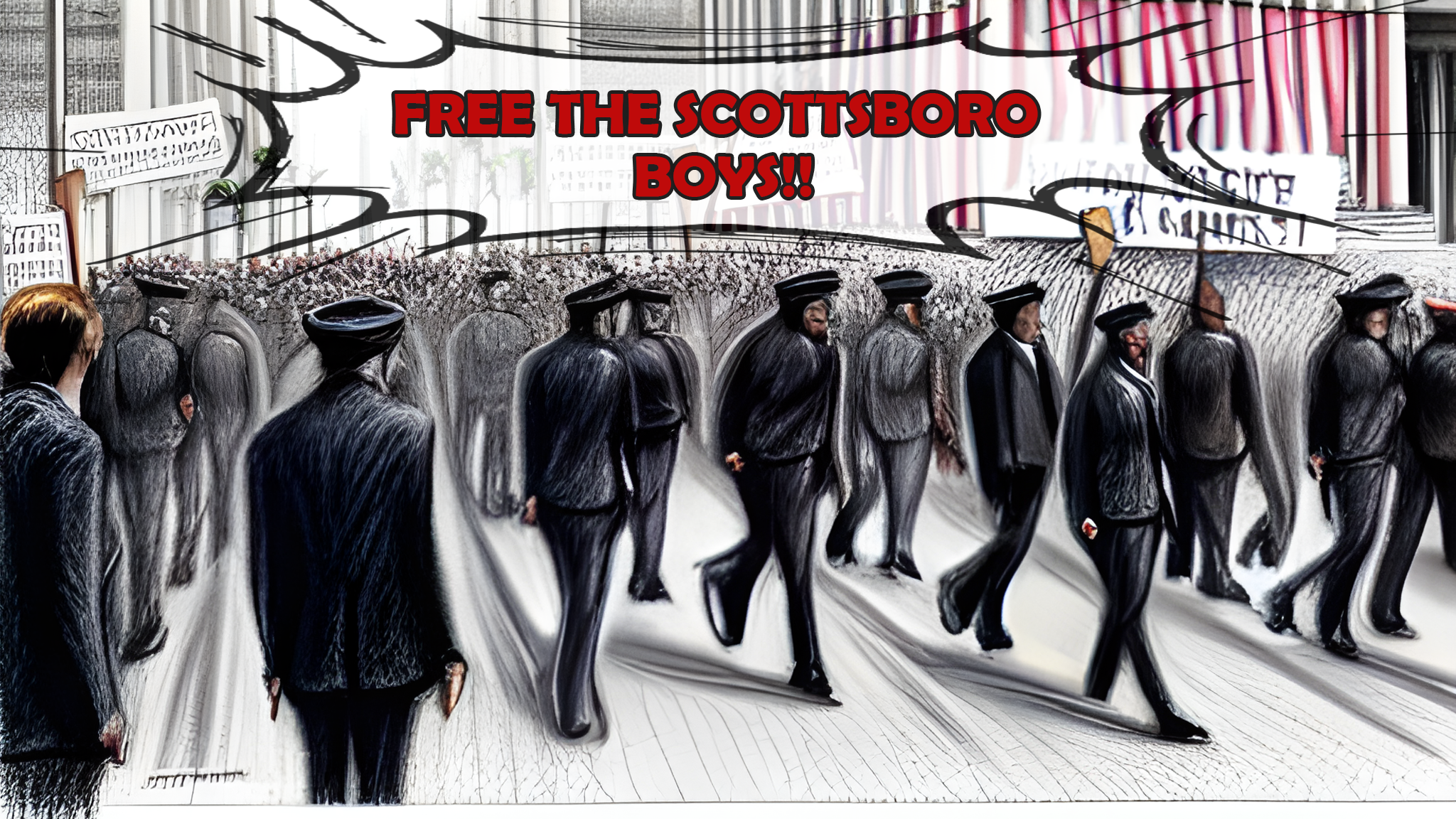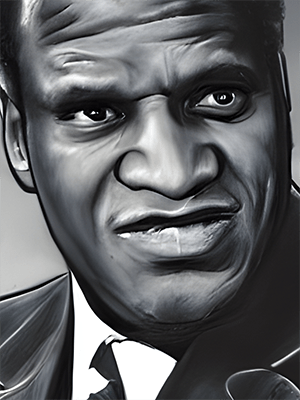RUSSIA AND BLACK PEOPLE: RELATIONSHIP STATUS (IT’S COMPLICATED)
By Darius Spearman (africanelements)
About the author: Darius Spearman is a professor of Black Studies at San Diego College, where he has been pursuing his love of teaching since 2007. He is the author of several books, including Between The Color Lines: A History of African Americans on the California Frontier Through 1890. You can visit Darius online at africanelements.org.
Brittney Griner, a WNBA superstar with numerous accolades, had been entering Russia to play in the Russian Premier League during the off-season since 2014. However, in February 2022, Russian customs officials detained Griner after finding cartridges containing hashish oil in her luggage. The entire saga ended with her release and return to the United States in December of this year. But the relationship between Black people and the Soviet Union is a complex and multifaceted one that has evolved over time. In this case, Brittney Griner, an open lesbian, adds an additional layer to that relationship — Black people of celebrity status who are simultaneously members of the LGBT+ community. Whether that presents a problem depends largely on the historical period.
In the early years of the Soviet Union, the government implemented policies to promote racial equality and combat discrimination. However, as the Soviet Union became more authoritarian, these policies were often ignored or actively undermined. Over the years, Russia’s climate towards Black people has vacillated between acceptance and discrimination and violence.
THE RUSSIAN REVOLUTION
The Russian Revolution of 1917 was a major event that had far-reaching consequences. At that time, the Bolshevik Party and its leader Vladimir Lenin overthrew the existing Russian government and replaced it with a communist regime. The immediate outcome of the revolution was the establishment of the Soviet Union. This single-party communist state was controlled by the Communist Party and its leader, Lenin and later Joseph Stalin.
The revolution also had a profound impact on Russian society. It led to sweeping changes, including the nationalization of industry, the collectivization of agriculture, and the implementation of a planned economy. These changes profoundly impacted ordinary Russians’ lives, and many people suffered under the harsh conditions of the Soviet regime. Overall, the outcome of the Russian Revolution would shape the course of world history for many years to come.
In the United States, the rise of communism in Russia sparked fears that the ideology would spread to other countries, including the United States. It is worth noting that immigration to the United States was already high in the early 20th century, and the period of the Russian Revolution was no exception. The United States experienced significant immigration from Europe during this time, as well as many refugees fleeing the aftermath of the Russian Revolution.
AFRICAN AMERICANS AND THE SOVIET UNION
On the other hand, the Soviet Union attracted some African American visitors, particularly those who were sympathetic to the communist cause. The Soviet government began to support Black Americans during the 1920s, particularly those active in the Communist Party USA (CPUSA). In 1924, the American Negro Labor Congress sent a delegation to Moscow to discuss issues affecting Blacks in America. Other prominent visitors included Langston Hughes, Claude McKay, and other Black people interested in the Soviet Union’s policies on racial equality. Also among the visitors were the mothers of the Scottsboro 9, a case that most prominently showed the communist party’s commitment to racial equality.

In 1931, the CPUSA supported the Scottsboro Boys, a group of nine Black teenagers in Alabama who were falsely accused of rape. The CPUSA was a political party in the United States that was committed to advancing the cause of communism. The case became a major civil rights issue, and the CPUSA was one of the few organizations that spoke out in defense of the teenagers. The party organized protests and raised funds for their legal defense.

Paul Robeson, a Black American singer, and actor, visited Russia several times during his career because he believed the Soviet Union’s policies on racial equality were superior to those of the United States.
Paul Robeson, a Black American singer, and actor, visited Russia several times during his career. He first visited the Soviet Union in 1934 and returned several times over the years. Robeson’s visits to Russia were motivated mainly by his political beliefs. Robeson was a committed socialist and was drawn to the Soviet Union because of its commitment to building a socialist society. He was also interested in the Soviet Union’s policies on racial equality, which he believed were superior to those of the United States.
As a singer and actor, Robeson was well-known and respected in the Soviet Union and was invited to perform and speak at various events. Robeson’s visits to Russia took place during a time of great change and turmoil in the Soviet Union. The outbreak of World War II and the country’s alliance with the United States and other Western powers had a major impact on the Soviet Union’s foreign and domestic policies that shaped the country’s development in the 1940s.
The CPUSA’s support for the Scottsboro Boys was part of the party’s broader commitment to fighting racism and discrimination. The party believed that racism was a tool used by the capitalist system to divide and oppress the working class and that it was necessary to challenge racism to advance the cause of communism. The CPUSA’s support for the Scottsboro Boys exemplifies the party’s commitment to fighting racism and promoting equality.
THE AUTHORITARIAN STATE
One of the most significant changes in Soviet policy during the 1940s was the shift towards a more authoritarian and repressive government. This change was largely a result of Stalin’s leadership, as he implemented a series of policies that aimed to consolidate his power and control over the country.
Signaling the change, Bayard Rustin, another American Civil Rights activist and leader, left the CPUSA disillusioned with the party’s ideology and tactics. He joined the Communist Party USA in the 1940s. Rustin, a Black pacifist and open homosexual, was drawn to the party’s commitment to fighting racism and promoting social justice, but Stalin’s policies caused the Soviet regime to grow increasingly intolerant of ethnic minorities and homosexuals. Many Black people were subjected to discrimination and persecution; some were even imprisoned in labor camps.
Despite his departure from the party, Rustin remained influential and respected in the civil rights movement. Leaving the CPUSA in 1948, Rustin became an independent socialist. He continued working for civil rights and social justice outside of the Communist Party.
After Stalin’s death, the Soviet government implemented more inclusive policies, and Black people became more prominent in Soviet society. Despite the many changes in the Soviet Union during this time, Robeson continued to visit the country. Robeson continued to visit during the period of de-Stalinization when the Soviet government was implementing more liberal policies.
THE FALL OF THE SOVIET UNION
After the fall of the Soviet Union in 1991, the United States and Russia entered a new phase in their relationship. Initially, there was a sense of optimism and cooperation between the two countries as they worked together on issues such as arms control and economic assistance to the newly independent states of the former Soviet Union. However, as time went on, tensions began to rise between the US and Russia, particularly over issues related to NATO expansion and the conflicts in Ukraine and Syria. Today, the relationship between the US and Russia is marked by a high level of mistrust and animosity.
Relations between Black people and the Soviet Union also changed significantly after the fall of the Soviet Union. The Soviet Union was a vast and diverse country, and the experiences of Black people varied from region to region. However, generally speaking, the fall of the Soviet Union had a negative impact on the lives of Black people in the Soviet successor states. After the collapse of the Soviet Union, many of the policies and protections that had been in place to promote racial equality were dismantled, and many Black people faced discrimination and violence.
In the Russian Federation, for example, Black people were often targets of hate crimes and faced widespread discrimination in housing, education, and employment. These challenges were compounded by the economic and political instability that followed the fall of the Soviet Union, and many Black people struggled to maintain their livelihoods and rights.
Additionally, Russia’s attitudes toward the LGBT+ community have undergone significant changes throughout history. In the early years of the Russian Federation, after the fall of the Soviet Union, there was a period of relative openness and tolerance towards LGBT+ people. However, starting in the 2000s, there has been a marked increase in anti-LGBT sentiment in Russia, and the country has implemented laws and policies that discriminate against LGBT+ people. For example, in 2013, Russia passed a law prohibiting the distribution of “propaganda of non-traditional sexual relationships” to minors, which has been used to justify the persecution of LGBT+ people. Despite this, many LGBT+ people in Russia still fight for their rights and visibility.
CONCLUSION: A PERFECT STORM
The relationship between Black people, the Soviet Union, and later Russia is complex and multifaceted. Like Bayard Rustin, Brittney Griner entered during a period of increasing intolerance toward Black people and homosexuals. From the early years when the Soviet Union promoted racial equality to the latter years when the Soviet Union became more authoritarian, Black people have actively sought to better their conditions be that in the United States, Russia, or elsewhere. The timing of Brittney Griner’s unfortunate experience took place during a confluence of increased repression against ethnic and sexual minorities as well as a period of increased tension with the United States. It was essentially a perfect storm.
